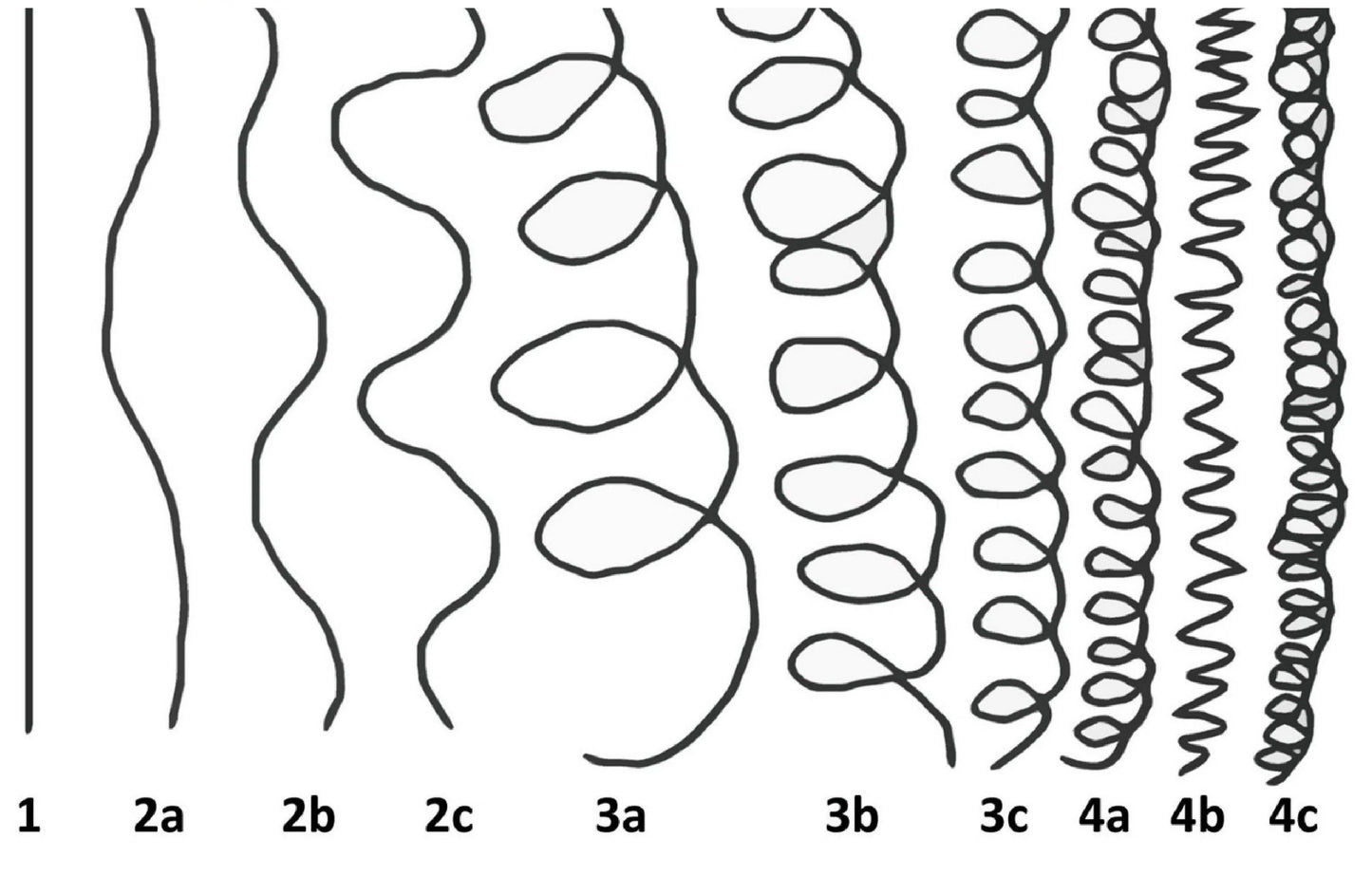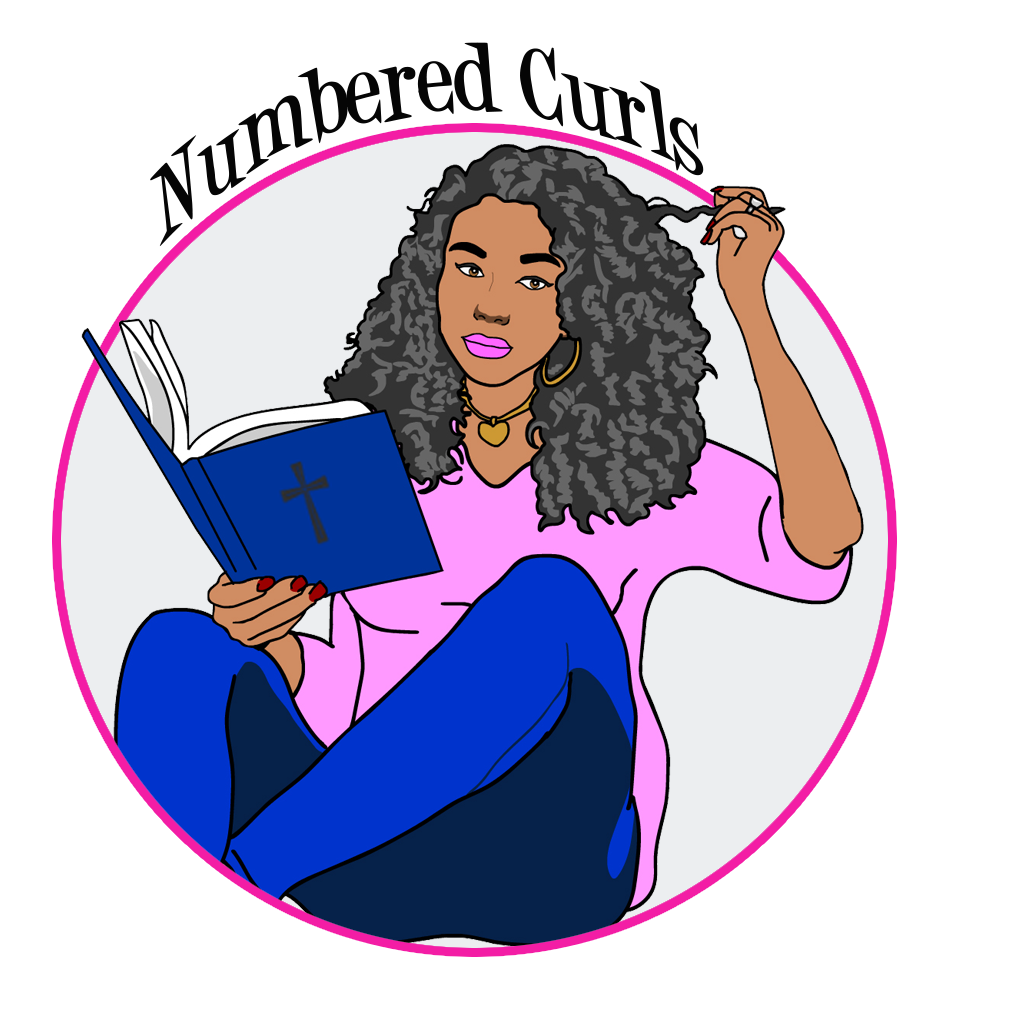
"I'm a 3a! I'm a 4c! I'm a 4a/4b!"
Ahhhhhhhh!!!! If you only knew... when I hear people talk about what hair type they are, it feels like nails on a chalkboard to me. Let me clarify, though. It's not every conversation about hair type. It's the conversations where people use hair typing to stereotype and/or discriminate others. Unfortunately, this is a good majority of the conversations that I hear. For those of you who are wondering what I'm even talking about, I've attached a picture of a "hair type" chart below:

Hair typing is a means of identifying how straight or curly one's hair is. A few years ago, identifying your hair type was just as important as breathing. Today, there's a huge debate on the importance of it. Some argue that it's extremely important. Some think that it's pointless. And others, like me, see the pros and cons of hair typing. I could write an entire sermon on the CONS of hair typing. Instead, I'm going to quickly touch on 4 points:
1) Hair Typing's Origins- Initially, it aimed at simplifying natural hair care. Unfortunately, it became a tool of discrimination. Stylists would note hair types that they were comfortable with styling (which often did not include type "4" hair types.
2) Misplaced Focus- Instead of promoting hair health, hair typing often leads to the wrong hair care priorities. This often means that the shape of your curl is held in higher priority than ensuring that your hair (however it curls) is healthy.
3) Freeze- Your hair evolves and changes over time. Hair typing fails to acknowledge the dynamic nature of natural hair or even the fact that you can more than one curl pattern on your head.
4) Comparison Trap- It breeds unrealistic expectations, making certain types seem superior or inferior. I've heard many women complain about being a certain hair type and their curl not "curling right."
Now for the PROS or shall I say PRO because I only see one. Lol.
1) Sebum Matters- Hair typing can serve a purpose in understanding sebum, your hair's natural conditioner. This helps you to improve the overall health of your hair and better understand what products you should gravitate towards and away from.
In looking at sebum (your hair's natural oil), there are three buckets or categories of hair and it doesn't involve any numbers. So, you can throw 1,2,3 and 4 out the door! All that matters is understanding if your hair is Curly, Wavy, or Straight.
Sebum starts at the scalp and travels from your roots down to the ends of your hair. Because of this, people with straight hair often complain about having oily hair (as gravity causes sebum to move downward, conditioning their roots to ends). People with wavy hair tend to have moderately oiled hair as the sebum moves downward. The oil can make its way to the ends, but not as easily as it could if the hair was straight. People with curly hair tend to complain about having dry hair. This is because the sebum doesn't easily make its way to the ends of the hair. Again, this isn't about preference. This is literally gravity.
Knowing how sebum impacts your hair can let you know if you likely:
- Need to take extra steps to condition your hair (since sebum is a natural conditioner)
- Avoid oils (if your hair tends to build up oil easily)
- Understand problem areas of focus (oily scalps and dry ends)
Now that you've come this far, does hair typing matter? You may disagree, and that's ok. But, to me, the answer is a resounding no! Understanding what healthy hair looks and feels like for YOU is what matters. Throw out the 2b's, 3a's, and 4c's! Instead focus on the one hair type that truly matters: 1u!
